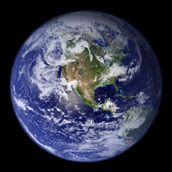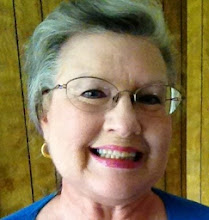
Today is the 40th anniversary of the Earth Day celebration. It’s hard to believe it’s been around that long, and as one of the original OSPIRGers (Oregon State Public Interest Group, started by students at the University of Oregon in the 60’s with Ralph Nader’s backing), I have a great deal to cheer about, in terms of progress made and battles won for the environment in the intervening years. There is also a great deal not to cheer about.
I am not a fanatical environmentalist, but it saddens me deeply when I see natural areas devastated by private interests whose only concerns are making a quick buck, or trash thrown down by some uninvolved (and lazy) passerby. It takes so very little time, energy, and money to do a great deal of good; but it also (obviously) takes even less time and effort to do nothing. The thing that worries me, however, is how long it may take for Joe or Jane Q. Public to wake up and realize that there’s a problem. How long before they start doing anything to change? Anything at all would be a start!
Yes, we OSPIRGers got the Oregon Bottle Bill passed back in 1969 (I believe), which was immediately followed by several sister organizations springing up across the country pushing similar legislation through their respective state legislatures. Yes, we members of the Eastern Oregon Environmental Council (another college group I was part of—I was secretary, among other things) got out the write-in vote for S.T. Minam (Save the Minam—now a part of Eagle Cap Wilderness Area, where Sam and I spend a considerable amount of our vacation time) when our US Representative Al Ullman wanted to make it into a “multi-use area” years ago. He lost the election to S. T., backed off, and to the amazement of nearly everyone, worked to make the Minam River drainage part of the US Government Wild Rivers Act. Eagle Cap was made a Wilderness Area in the wake of the Minam River action, and there is even talk nowadays of making it into a National Park. See what can happen when YOU get involved? It even amazes me at times, but I didn’t do any of this myself. I was only one of many of concerned citizens who saw something happening that they believed was wrong—and got off their backsides and did something about it.
Much has been accomplished in the past 40 years, but so much remains that it’s enough to depress anyone into doing nothing. Now I live in the Puget Sound area of Washington State, and I hear news that grieves and disheartens me every single day. One of the symptoms of depression is a state of inaction, but I say what it should do is make me angry—very angry, and angry enough to fight about it.
One thing I learned while writing the posts about killer whales (orcas) is that they are not considered endangered world-wide, but the Puget Sound killer whales are, however—NOAA (National Oceanic and Atmospheric Administration, a federal agency focused on the conditions of the oceans and atmosphere) has placed them on their endangered list. We had a local population of 88, until eight of them simply disappeared in 2008—that’s 10% of our local killer whale population, folks! As far as I know, no one knows to this day what happened to them. This year five gray whales have died in Puget Sound thus far. I hear on the news that it is not unusual for this to happen as they migrate south from Alaska to their breeding grounds off Baja California, and this is an El Niño year, so the food chain in the Pacific Ocean is skewed. Not surprisingly, the post mortems have shown that these whales starved to death, but what is alarming is that their stomachs were full of plastic bags, sweat pants, and all manner of indigestible trash. Did they ingest this stuff along with whatever else they were eating, or were they eating it because that’s all there was? Either way, the answers are disturbing.
Sam and I recently vacationed in Pacific City, Oregon, and on the drive home we stopped at a little spot up the coast near Netart’s Bay. I don’t know the name of the place, but these people are engaged in research and growing oyster larvae for the big commercial outfits. They were kind enough to give us an impromptu tour (I got to look at two-day-old oyster larvae through the microscope! They look just like oysters, except they are transparent and swim around like crazy.), and a brief from-the-hip lecture on their concerns. National Geographic Magazine had been there just one week before filming, so these people know what they are talking about. They told us that there is a problem with the PH in the Pacific Ocean; it’s becoming too acid, and nobody knows why. Some people have some guesses, but no one knows for sure. Anyway, it doesn’t take much acidification to dissolve baby oysters’ shells, and that’s what’s happening all over the ocean, so if the problem isn’t solved soon—and I mean very soon—oysters may be extinct, because they can no longer reproduce viable offspring. You know, I had been worried about the environment before, but that news scared me.
The list of scary news could go on and on, but I don’t wish to bore you. What I would like to do instead is challenge those of you who read this to examine your lives and see what small changes you can make that will make a difference in the world around you. Pick up your trash and put it in the appropriate can, NOT the Recycle bin—AND put your recyclables in there. Don’t toss soda pop cans in the garbage. Aluminum cans take a great deal of energy (in the Great Northwest, that’s hydropower, elsewhere it’s coal-fired generators) to manufacture. Most solid waste companies, at least in the Puget Sound, don’t even require you to sort your recyclables anymore. Take your plastic bags to the store to be recycled—or better yet, replace them with your own tote bags. You can get them almost anywhere now, or even make your own. Keep that crap out of animals’ stomachs! And, when you buy products, buy environmentally friendly ones. With the huge push behind the Green Movement that’s been going on for the last couple of years, it’s easy to do. You may be quite surprised to learn that you can clean up the most horrible mess with simple, organic cleaning products, rather than buying the super-poisonous chemical ones we’re used to. You’ll SAVE MONEY too, while you’re doing the planet a favor. What could be easier than that? What could be better? Basically, just don’t be a planet slob. Be responsible, like a grown-up. You are one, aren’t you?

No comments:
Post a Comment